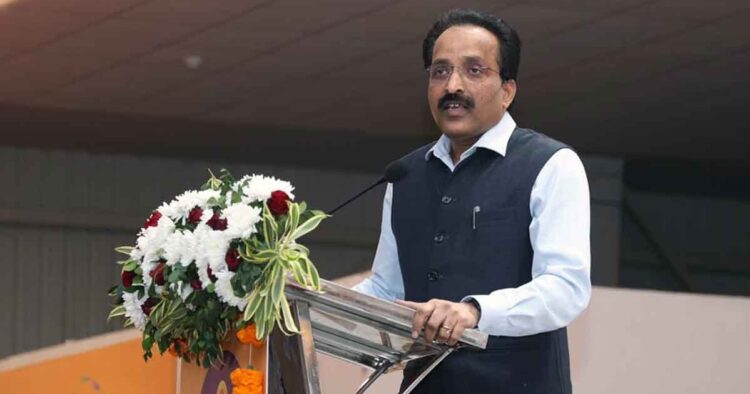In a recent address at an event organized by Pragjyotishpur University, the chief of the Indian Space Research Organisation (ISRO), Somnath, emphasized the growing impact of artificial intelligence (AI) in our daily lives. He highlighted that AI is ever-present, with every phone we use actively learning about us. According to Somnath, the data generated by our interactions with technology is shaping a comprehensive profile of individuals, capturing their preferences and habits. He suggested that, in the future, AI is poised to play a significant role in various aspects of our lives.
Furthermore, Somnath emphasized the rapid advancements in AI, stating that it will continue to expand its influence over time. He pointed out that computers may know individuals better than their friends, thanks to the continuous learning process driven by AI. The ISRO chief predicted that AI would increasingly govern various aspects of society.
#WATCH | Guwahati, Assam: At an event organised by Pragjyotishpur University, ISRO Chairman S Somanath says, "…Today we are talking about artificial intelligence (AI)…AI is around us. Every phone that you handle is actually learning you bit by bit. Every key that you use… pic.twitter.com/BEUsBLZWDx
— ANI (@ANI) January 17, 2024
Earlier this month, on January 11, Somnath outlined India’s ambitious space exploration vision. He revealed plans for India to establish a space station by 2035 and achieve an Bharat presence on the moon by 2040. Reflecting on recent successes, Somnath credited the guidance provided by Prime Minister Narendra Modi, describing him as a fervent supporter of India’s space endeavors.
Somnath shared insights from the International Space Conference 2024 in Gandhinagar, stating that the prime minister has advocated for continuous human presence in space. Despite ongoing initiatives such as the Gaganyaan program, the ISRO chief stressed the need for sustained efforts, leading up to a human landing on the moon by 2040. Additionally, he outlined plans to build a space station accessible to Indians for research purposes by 2035.
The chief’s address followed a series of successful missions by ISRO, including the launch of the Aditya-L1 spacecraft to study the Sun and the X-ray Polarimeter Satellite (XPoSat) designed to analyze cosmic X-rays. These achievements underscore India’s commitment to advancing both AI and space exploration, aligning with the global trajectory of technological progress.

















Comments